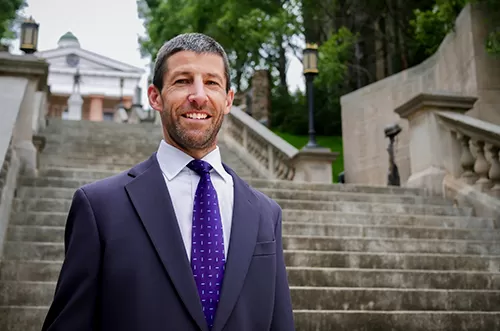Tingler v. Graystone Homes, Inc., 834 S.E.2d 244 (Va. Oct. 29, 2019)
In 2009, George and Crystal Tingler (the “Tinglers”) executed a construction contract with Graystone Homes, Inc. (“Graystone”) to construct a new home on property owned by a family run company, Belle Meade Farm, LLC (“Belle Meade”). The contract did not mention Belle Meade, but it was the owner of the land on which the home was built and it made the payments due under the contract to Graystone. The Tinglers claimed they entered into the contract on behalf of their principal, Belle Meade, and that Belle Meade was in privity of contract with Graystone. Alternatively, the Tinglers argued that Belle Meade was an intended third-party beneficiary.
In 2010, at the 30-day inspection of the Home, the Tinglers discovered and reported leaks in the patio doors in the dining room. In response, Graystone added sealants and replaced the damaged hardwood flooring. In early 2011, the Tinglers discovered and reported another leak in the dining room. In response, Graystone installed additional flashing and again replaced the damaged hardwood flooring. Graystone did not look for mold on either occasion.
After experiencing mold exposure symptoms in early 2014, the Tinglers hired an inspector who discovered mold in the basement, elevated airborne mold spores throughout the home, and elevated moisture in the kitchen and dining areas. In October 2014, Graystone removed and reinstalled the patio doors, windows, and hardwood flooring, installed drain pans under the patio doors, added more sealants around the patio doors, and applied an anti-microbial solution. Graystone, however, did not inspect for mold behind the drywall.
Later that month, a reinspection revealed elevated moisture levels in the dining and kitchen areas near the patio doors. A Graystone employee cut a hole in the dining room drywall, removed a large section of wet, moldy insulation, dropped the insulation on the floor, cleaned up the mess with Tinglers’ vacuum cleaner, and covered the drywall hole with a black garbage bag. The employee did not place a barrier around the work site. In November 2014, at the Tingler’s request, Graystone placed a containment sheeting in the dining.
The Tinglers eventually abandoned the home due to the mold and sued Graystone, seeking tort remedies for personal injuries, property damage, and economic losses. In a separate lawsuit, the Tinglers and Belle Meade sued Graystone, seeking contract remedies for property damage and economic loss. The circuit court sustained Graystone’s demurrers, dismissed all claims, and held that, under the source of duty rule, no negligence claim could prevail because Graystone’s alleged misdeeds consisted of its failure to perform its contractual duties. The circuit court dismissed Belle Meade’s contract claims because Belle Meade was not a party to the agreement. The circuit court dismissed the Tingler’s contract claims because the home became a fixture of the land owned by Belle Meade, not by the Tinglers. On appeal, the Supreme Court of Virginia considered two arguments: (i) whether the Tinglers’ personal-injury and property damage claims should survive demurrer because the source-of-duty rule does not preclude tort remedies for Graystone’s negligence; and (ii) whether the Tinglers’ and Belle Meade’s contract claims should survive demurrer because they pleaded that the Tinglers served as agents for Belle Meade when they entered into the contract and, in the alternative, that Belle Meade was an intended third-party beneficiary of the contract.
In Virginia, negligence cannot arise until it is established that the man who has been negligent owed some duty to the person who seeks to make him liable for his negligence. Negligent acts of malfeasance during the construction process that cause reasonably foreseeable personal injuries can implicate tort liability irrespective of a contractual duty to prudently avoid injuring others during the performance of the contract. Personal injuries to person or property of one who is not a party to the contract that occurs after the contractor completes the work and turns it over to the owner and the owner accepts the contractor’s work can be recoverable in tort if peculiar circumstances show that the contractor’s negligent acts created an inherently or imminently dangerous condition. If, however, the wrongful act is not immediately dangerous to the lives of others, the negligent party is generally liable only to the party with whom it contracts with and that negligence only gives rise to a breach of contract.
The Tinglers’ negligence claims for Graystone’s failure to weatherproof the home arose out of Graystone’s original performance of the contract, but no personal injuries occurred during the construction. In applying the source-of-duty rule, the Court held that the Tinglers’ claims against Graystone sounded only in contract and, therefore, the circuit court did not err in sustaining Graystone’s demurrers to the Tinglers’ negligence claims.
With respect to Graystone’s post-construction repairs, the Court held that the Tinglers’ claims would support a tort claim only to the extent that Graystone’s failed repairs made the original condition worse and, by doing so, caused new personal injuries or aggravated preexisting injuries. The Court held that the allegations, along with the reasonable inferences therefrom, asserted a viable claim for negligent repairs and, therefore, the circuit court erred in dismissing the Tinglers’ negligent-repair tort claim.
The Court also held that the Tinglers and Belle Meade alleged sufficient facts to support the existence of an agency relationship. An agent acting on behalf of either a disclosed or an undisclosed principal can sue in his own name on behalf of the principal so long as he is a party to the contract. The Tinglers’ Amended Complaint alleged: (i) that Crystal Tingler’s father was the sole managing member of Belle Meade and had control over the manner in which Belle Meade was run and how its business was operated; (ii) Crystal Tingler performed office and accounting functions for Belle Meade at the direction of her father; (iii) George Tingler was a full time employee of Belle Meade who worked on the farm under the direction and control of Belle Meade; (iv) the Tinglers entered into the contract with Graystone with the consent and approval of Belle Meade; (v) Graystone was aware that Belle Meade owned the property; (vi) that Belle Meade made the payments to Graystone under the contract; (vii) that Belle Meade intended to transfer ownership of the home to the Tinglers; and (viii) that the Tinglers were acting as agents for Belle Meade and within the scope of their authority when the entered into the contract, with Belle Meade as the principal under the terms of the agreement. These allegations were sufficient to state a contract claim based upon an agency relationship. Therefore, the circuit court erred in finding he allegations insufficient to support an agency relationship.
Additionally, the Court found that Belle Meade alleged sufficient facts to reasonably infer that the Tinglers and Graystone intended for Belle Meade to be a third-party beneficiary of the contract. While a contract may expressly state such an intent to benefit a third party, evidence of such intent need not be limited to the four corners of the contract and may be proven by surrounding circumstances. The Tinglers’ Amended Complaint alleged: (i) that Graystone was aware that Belle Meade owned the property at the time it performed the work on the home; (ii) that the intent of the contract was to build the home for the Tinglers to live on the farm and that the Tinglers would thereafter reside on the farm an in their new home even through Belle Meade would remain the record owner at all times of the contract performance; (iii) that Graystone knew that the property was owned by Belle Meade because Graystone obtained a building permit for the construction; and (iv) that Graystone was aware that Belle Meade paid the amount due under the contract. If proven at trial, the factual allegations would have demonstrated that Graystone and Tingler intended for the contract to benefit Belle Meade and the circuit court, therefore, erred in finding that Belle Meade did not allege facts to support its third-party beneficiary claim.





